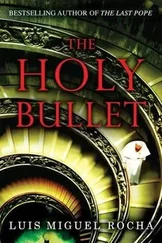Judith Rock - The Eloquence of Blood
Здесь есть возможность читать онлайн «Judith Rock - The Eloquence of Blood» весь текст электронной книги совершенно бесплатно (целиком полную версию без сокращений). В некоторых случаях можно слушать аудио, скачать через торрент в формате fb2 и присутствует краткое содержание. Жанр: Исторический детектив, на английском языке. Описание произведения, (предисловие) а так же отзывы посетителей доступны на портале библиотеки ЛибКат.
- Название:The Eloquence of Blood
- Автор:
- Жанр:
- Год:неизвестен
- ISBN:нет данных
- Рейтинг книги:5 / 5. Голосов: 1
-
Избранное:Добавить в избранное
- Отзывы:
-
Ваша оценка:
- 100
- 1
- 2
- 3
- 4
- 5
The Eloquence of Blood: краткое содержание, описание и аннотация
Предлагаем к чтению аннотацию, описание, краткое содержание или предисловие (зависит от того, что написал сам автор книги «The Eloquence of Blood»). Если вы не нашли необходимую информацию о книге — напишите в комментариях, мы постараемся отыскать её.
The Eloquence of Blood — читать онлайн бесплатно полную книгу (весь текст) целиком
Ниже представлен текст книги, разбитый по страницам. Система сохранения места последней прочитанной страницы, позволяет с удобством читать онлайн бесплатно книгу «The Eloquence of Blood», без необходимости каждый раз заново искать на чём Вы остановились. Поставьте закладку, и сможете в любой момент перейти на страницу, на которой закончили чтение.
Интервал:
Закладка:
Flames leaped as a log broke in the fireplace, and Charles saw that Renee’s eyes were the same vivid green as the old woman’s. Her face, though, was round and plain, while the old woman had bones a duchess would pine for. Charles suddenly remembered where he’d seen Renee’s smoke-blue skirt, good-quality wool, much better than a kitchen servant would have.
“You were Mademoiselle Mynette’s maid,” he said, moving so that she could see him. “I had a glimpse of you yesterday morning at the Mynette house, when the commissaire was questioning you.”
La Reynie nodded at Charles and stepped a little aside. Taking his cue, Charles said courteously, “I am Maitre du Luc. I know the Brion family. Before you found Mademoiselle Mynette yesterday morning, did you hear anything unusual, anyone in the street, or at the door?”
Suddenly shamefaced, Renee shrugged and looked away, biting her lip. Charles remembered M. Callot saying angrily that the maid had been the worse for drink when she found Martine.
“I think you did hear something,” Charles said, watching her.
She turned back to him, her eyes glistening with tears. “I heard-I thought I heard-someone call up to her from the street. But I didn’t get up to see.” Her voice dropped to a whisper. “I was heavy with sleep.”
“With drink,” the cook said laconically from the fireside. He upended his glass and refilled it.
“Hush, Giuseppe,” the old woman said sharply. “Let her be!”
“And being understandably tired the night before from all your work-I’ve heard that the other Mynette servants had already left-perhaps you forgot to lock and bar the street door?” Charles read the answer in her sullen face. “You were alone in the house with Mademoiselle Mynette, were you not?”
“Except for the boy who turned the spit in the kitchen and laid the fires. The others went like rats from a foundered ship. They knew that paper she needed was gone, and if she didn’t get it back, how would she pay them?”
“Did any leave with pay owing to them?”
“No! She had her faults, but she would have fasted to a bone before she let any go unpaid.”
Charles was sure that Martine Mynette would have done exactly that. “But grudges can still be held unfairly. Who were the servants who left?”
Renee’s eyes, suddenly calculating, went from Charles to La Reynie.
“There was Paul Saglio. The footman. My young mistress turned him out when her mother was ill. She wouldn’t tell me exactly why, but it wasn’t hard to guess. Monsieur Saglio was much too free with his hands,” she said resentfully. “With Mademoiselle Martine’s mother lying ill, he thought there was no one to protect her.” Her eyes flashed and she picked up a knife lying beside the bread board and shook it at Charles. “If I’d seen him, I would have made him a capon, you may be sure of that. And he would never have bothered another woman!”
Charles regarded her thoughtfully. “So you are saying that this Paul Saglio likely went away angry at Mademoiselle Martine. Where did he go?”
“Vaugirard, most likely. He always said he knew someone there who could get him a better place, if he wanted it.”
Then it shouldn’t be hard to find him, Charles thought. The village of Vaugirard was only a few miles south of Paris. “Did anyone else leave with a grudge?”
“The gardener, maybe. Tito he’s called.” Renee glanced at Reine and said, “He left in the autumn. And good riddance.”
“Why?”
“He was a liar.”
A rustling came from the corner. “You’ve told me he was just soft-witted, Renee,” the old woman said reprovingly.
“That, too. He was always saying people took things from him. What did he own? Nothing. What would anyone take from him? Anyway, he left.”
“Why did he leave? And what is his surname?”
Renee dealt her dough a hard slap and turned it over. “He’s Tito La Rue. Late one night at the start of November, I found him opening Mademoiselle Martine’s bedchamber door. Mademoiselle Anne was already ill, but not yet so desperately ill. She’d fallen asleep and Mademoiselle Martine had gone to bed, too. I was just going to my own bed when I saw him. I chased him downstairs and outside, and he spent the night in the garden shed. When I told Mademoiselle Anne the next day, that was the end of him.”
“Was he angry at being dismissed?”
She snorted. “No, he wept and pleaded with Mademoiselle Anne to let him stay. Even if he is soft-witted, he’s a man and he knew what he was doing!”
“Where did he go?”
She shrugged and shook her head. “Who knows? If you want to know about all the servants, there was also the cook, Therese, her name is. After Mademoiselle Martine’s mother grew ill, Therese started taking things. Little things, but worth something. But she is an excellent cook, so Mademoiselle Martine only warned her. And locked the jewelry and silver away. Therese pretended to be very insulted and went home to her mother in St. Denis. To sell what she’d stolen.” Renee pummeled her dough.
Servants could be punished severely for attempting assault on a mistress or for stealing. Tito and Therese had gotten off lightly and would have known it, would have had every reason to be grateful. Mentally dismissing the light-fingered cook along with the lusty gardener, Charles said, “So only Paul Saglio seemed truly angry at Mademoiselle Martine Mynette. Yet the others left. All except you.”
“I’m loyal, me.” Muttering under her breath, Renee wiped her hands on her apron and went to the fire, where she plucked the cook’s glass from his hand and drained it. Without a word, the cook took it from her and filled it again. Renee stalked back to her dough.
Well, Charles thought, loyal or not, there was little need to ask why she’d stayed with Martine Mynette. And little need to wonder if she might have killed her young mistress herself. Why would she destroy the soft nest she’d found for herself? In a disintegrating household, Renee would have been well fed and free to drink herself to sleep every night under a good roof, with no one the wiser. Charles looked questioningly at La Reynie, who shook his head slightly and glanced toward the door into the coffeehouse. They thanked the women and the cook and took their leave, but before they reached the door, Reine called out, “Nicolas, you will find Monsieur Bizeul the goldsmith at the Sign of Two Angels, on the rue Christine.”
La Reynie walked back to where she sat. “What else do you know about him?”
She looked up from her carving and smiled, revealing missing and blackened teeth. “Much that was of use to me. Nothing that would be of use to you.”
La Reynie moved closer to her, and Charles saw coins glint in the firelight. Then Charles followed him back to the front room and the counter where the Sicilian woman was busy over her accounts.
“On Thursday, madame,” La Reynie said, “not long before you closed, three men were here together. Monsieur Claude Bizeul the goldsmith, Monsieur Henri Brion the notary, and another man. Do you remember them?”
Her black eyes were opaque, her face expressionless. “No, monsieur.”
“Surely you are more noticing of your customers than that, madame.”
“They gave me no reason to notice them.”
La Reynie leaned closer. “Then tell me what you did not notice, madame. Because one of them, Monsieur Henri Brion, is dead. As I am certain you already know.”
Dislike flared in her face and was as quickly gone. “Of course I know. Old Reine told me. But it’s nothing to do with Procope’s. And how can I tell you what I did not see?”
The lieutenant-general gave her his teeth-baring smile. “Easily, if you wish Procope’s to remain in business, madame.”
Читать дальшеИнтервал:
Закладка:
Похожие книги на «The Eloquence of Blood»
Представляем Вашему вниманию похожие книги на «The Eloquence of Blood» списком для выбора. Мы отобрали схожую по названию и смыслу литературу в надежде предоставить читателям больше вариантов отыскать новые, интересные, ещё непрочитанные произведения.
Обсуждение, отзывы о книге «The Eloquence of Blood» и просто собственные мнения читателей. Оставьте ваши комментарии, напишите, что Вы думаете о произведении, его смысле или главных героях. Укажите что конкретно понравилось, а что нет, и почему Вы так считаете.












